How to get rid of spiders and keep them out of your home
Here’s how to get rid of spiders for a web-free home

It’s that time of year when everyone’s looking up how to get rid of spiders. Spiders mate in the autumn, resulting in an abundance of these unwelcome guests. They invade our homes in search of food and shelter, so it’s no surprise if you spot one scuttling along the floor or building a web in the corner of the room. But, spiders aren’t something to ignore. They can breed quickly, or at least leave a serious mess behind from cobwebs.
Luckily, there are all kinds of ways to deal with these pests, whether through home remedies or traditional methods. We list options for both here if you’re facing a spider problem. We will also cover dangerous types of spider to avoid at all costs as well as tips to keep spiders out of your home in the future. So you won’t have to worry about webs cluttering up your home going forward.
If you want a way to deter spiders, check out these 9 plants that repel spiders and keep them out of your home. Plus, you might also want to know these 7 active pests to watch out for in the fall.
Is the spider dangerous?
Before you attempt to get rid of a spider in your home, make sure it’s not a Black Widow or Brown Recluse spider. While plenty of spiders can bite and cause discomfort, these two breeds are poisonous, and can be dangerous to people.
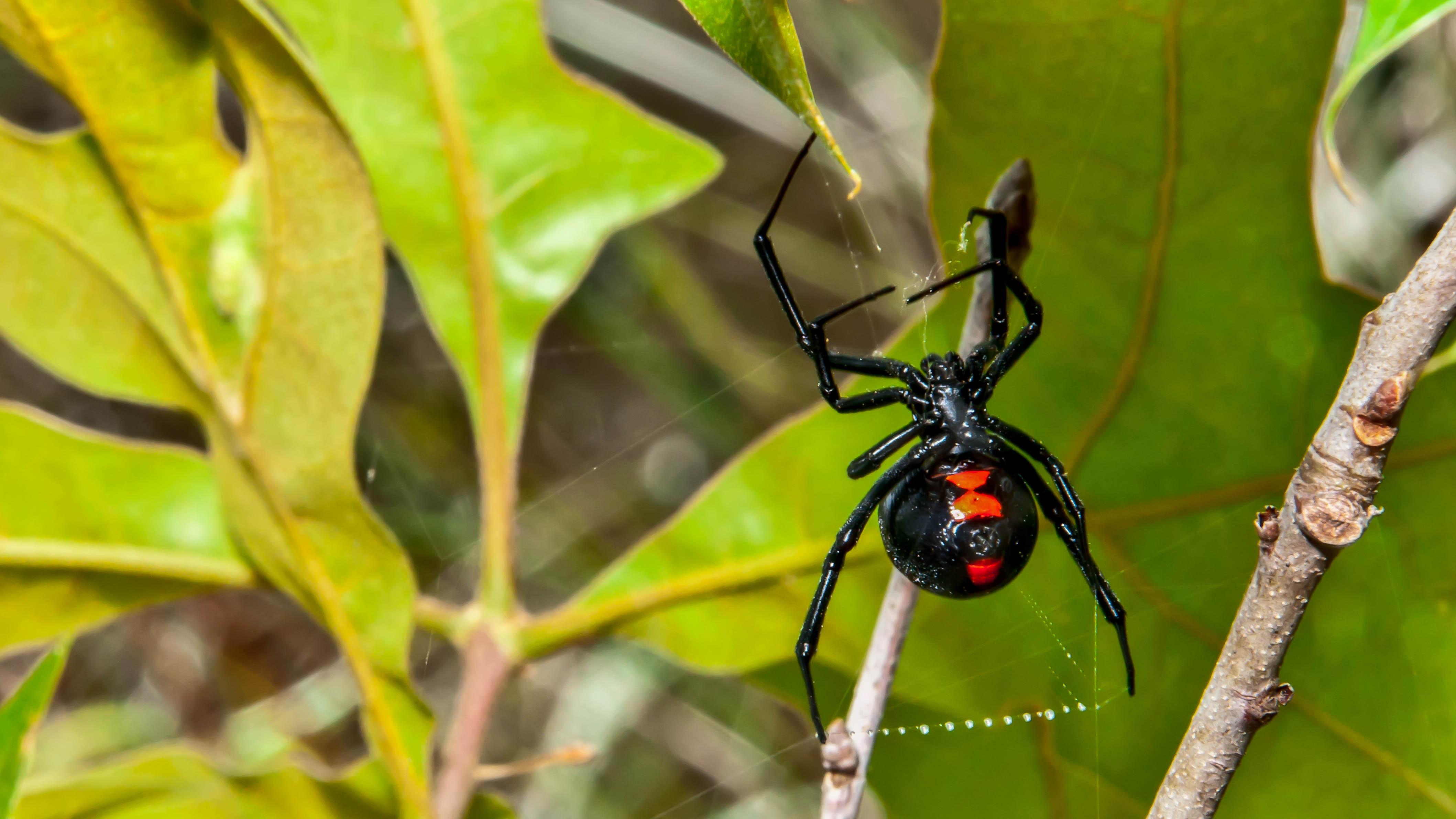
In Southern states, a Black Widow spider has a black body with a red hourglass shape on the underside of the body. In Northern states, they have a black or dark brown body with red, yellow or white spots down the center of the abdomen. Black Widows will mostly be found in dark spaces, such as attics or basements. The bite can affect the nervous system, causing muscle cramps, nausea and issues with breathing. While fatalities aren’t common, you should still seek medical attention if bitten.
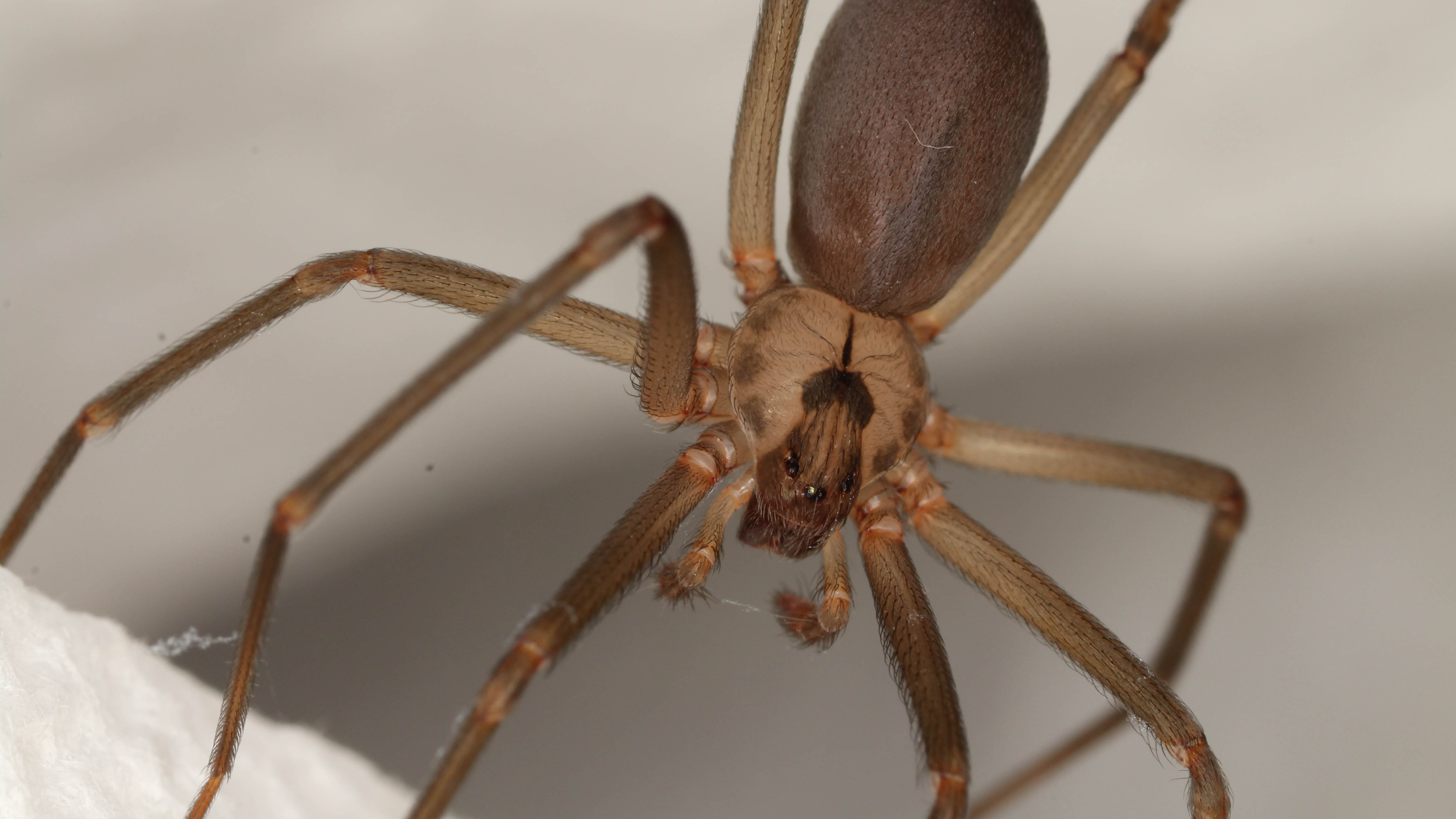
Brown Recluse spiders are more often found in the South. They have brown bodies with a small violin print on the back, and frequent dark, dry spaces, such as wood piles, attics and closets. A single bite can cause nausea, itching and aches — they’re particularly dangerous to young children and senior citizens. Again, seek medical attention if you think you’ve been bitten by a Brown Recluse spider.
It goes without saying that you shouldn’t attempt to get rid of either of these spiders if you suspect them in your home; call an exterminator instead. Otherwise, the following tips can be used to remove and deter spiders in your home.
Sign up to get the BEST of Tom's Guide direct to your inbox.
Get instant access to breaking news, the hottest reviews, great deals and helpful tips.
How to get rid of spiders using home remedies

1. Peppermint oil — The fresh, Christmas-y smell of peppermint will actually repel spiders. All you need to do is combine several drops of peppermint oil with some water in a spray bottle and spritz it around your home. The smell of lemon has similar results, so you could alternatively rub lemon peels around your home.
This won’t hurt the spiders, but it will discourage them from returning. Reapply weekly for best results. If you want to go the full hog, you could also invest in some peppermint plants.
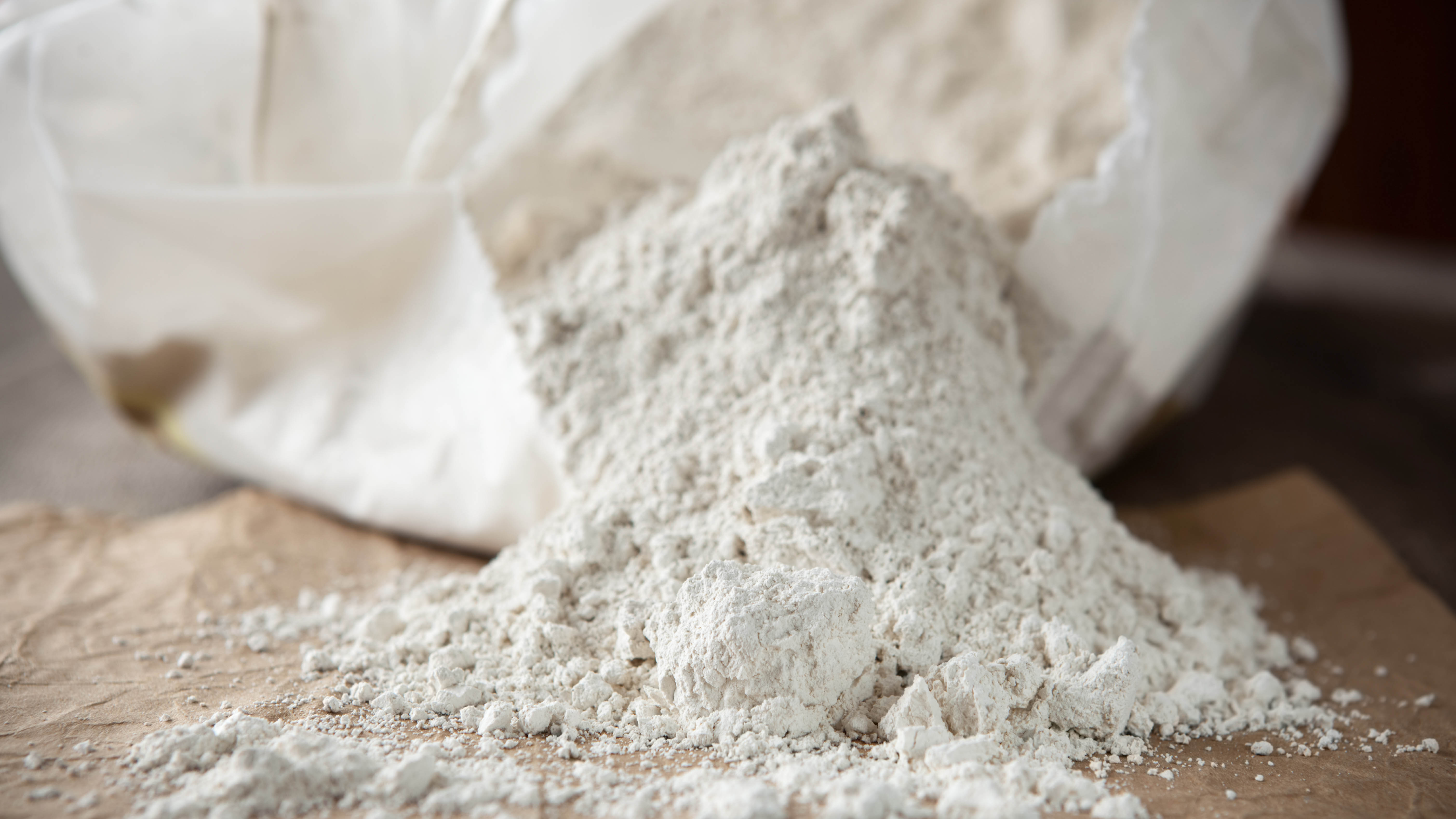
2. Diatomaceous Earth — This is a natural biological powder which is as effective on spiders as it is on other pests. If a spider comes into contact with Diatomaceous Earth, it will break down its exoskeleton, leading to death by dehydration. Simply sprinkle the powder in small, low-traffic spaces around your home, such as under furniture.
Diatomaceous Earth is safe to use around pets and humans, but be sure you’re using the ‘food grade’ variety. Follow the instructions for best use and avoid using it on countertops or anywhere you prepare food.
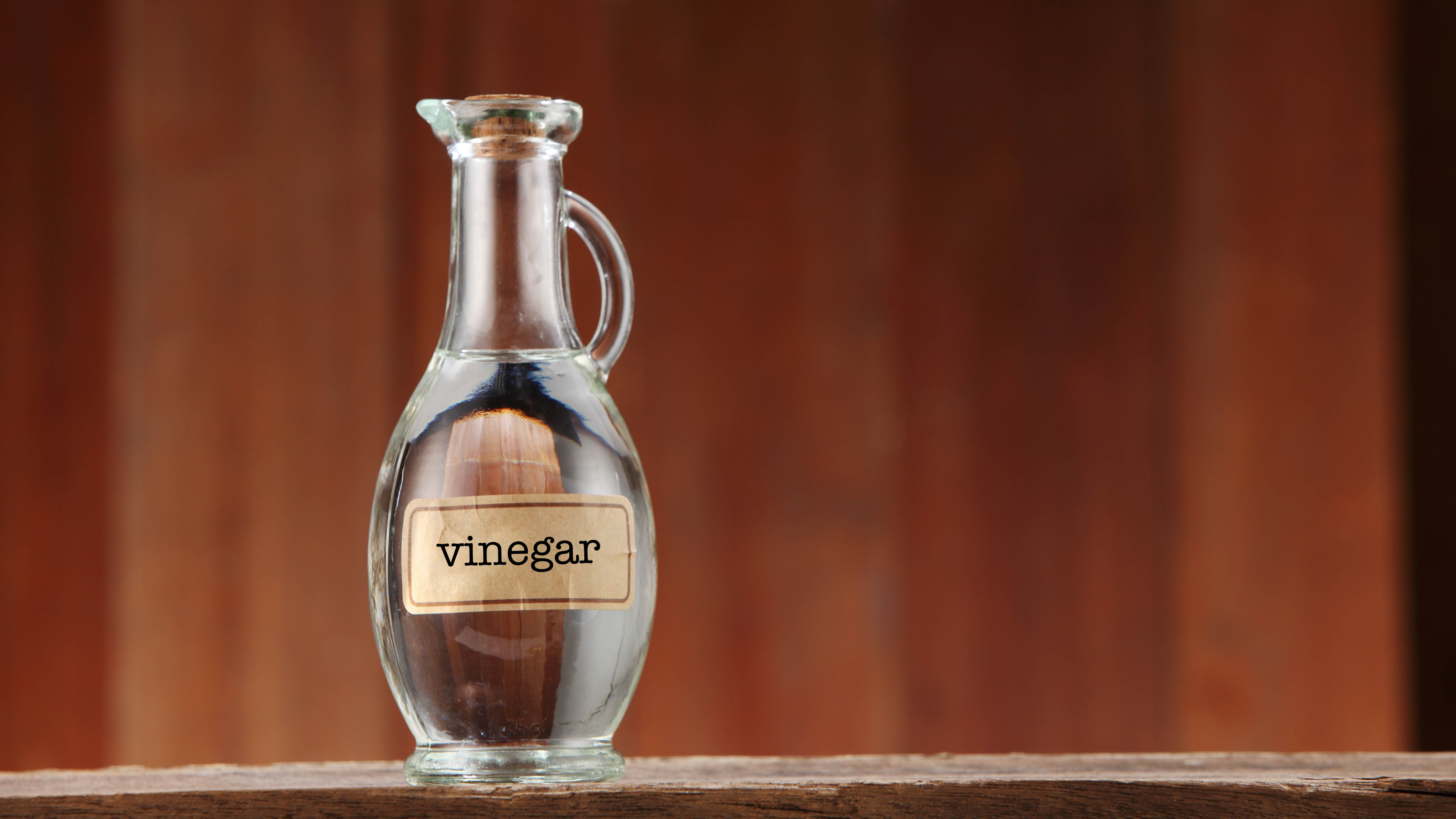
3. Vinegar — Vinegar seems to come in use for everything, and repelling spiders is no exception. White vinegar contains acetic acid which will damage and kill spiders if you spray them directly. You can also use it around the home as a deterrent.
Simply fill an empty spray bottle with a half white vinegar, half water solution and spray around areas where you’ve seen spiders in your home. Why not clean your home with the solution at the same time? Just be wary of these 7 things you should never clean with white vinegar.
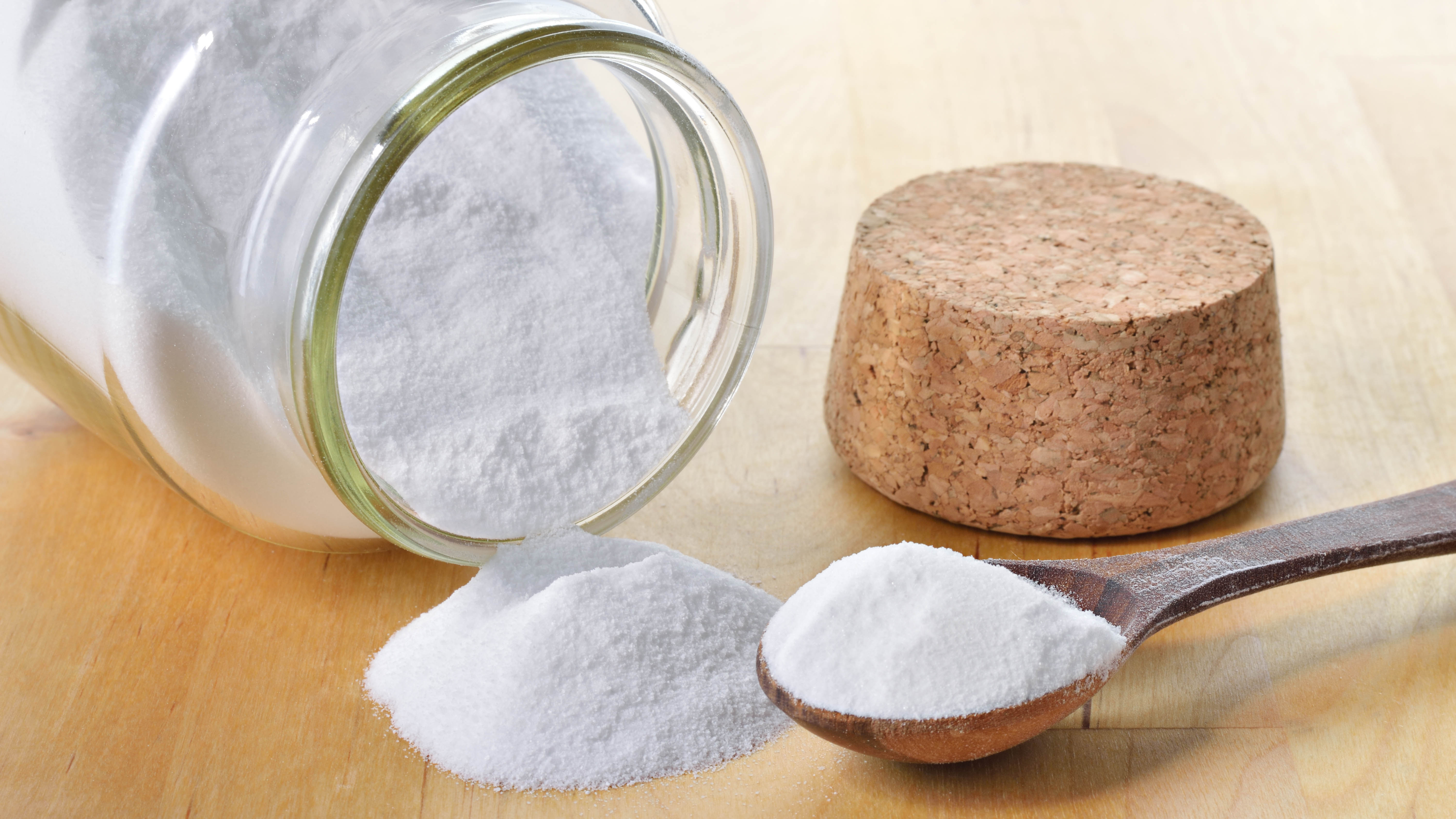
4. Baking soda — You can’t mention vinegar without referring to baking soda, it seems. Baking soda is another powder you can sprinkle around your home to tackle unwelcome spiders. It won’t kill the insects, but it’s a natural deterrent which can be found in most kitchen cupboards.
Baking soda is non-toxic as well, so you don’t need to worry about pets and kids running around. If guests are coming over and you want to remove the evidence, simply vacuum it up.

5. Vacuum cleaner — That leads us nicely onto this point. If you know exactly where the spider lives and it’s in your reach, you can just use your vacuum cleaner to deal with the problem and clear any cobwebs at the same time.
The sheer force of a vacuum will kill a spider immediately, so you don’t need to worry about it crawling back out of the dustbin. If you own one of the best vacuum cleaners, it may come with a telescopic wand which you can extend to reach awkward spaces.
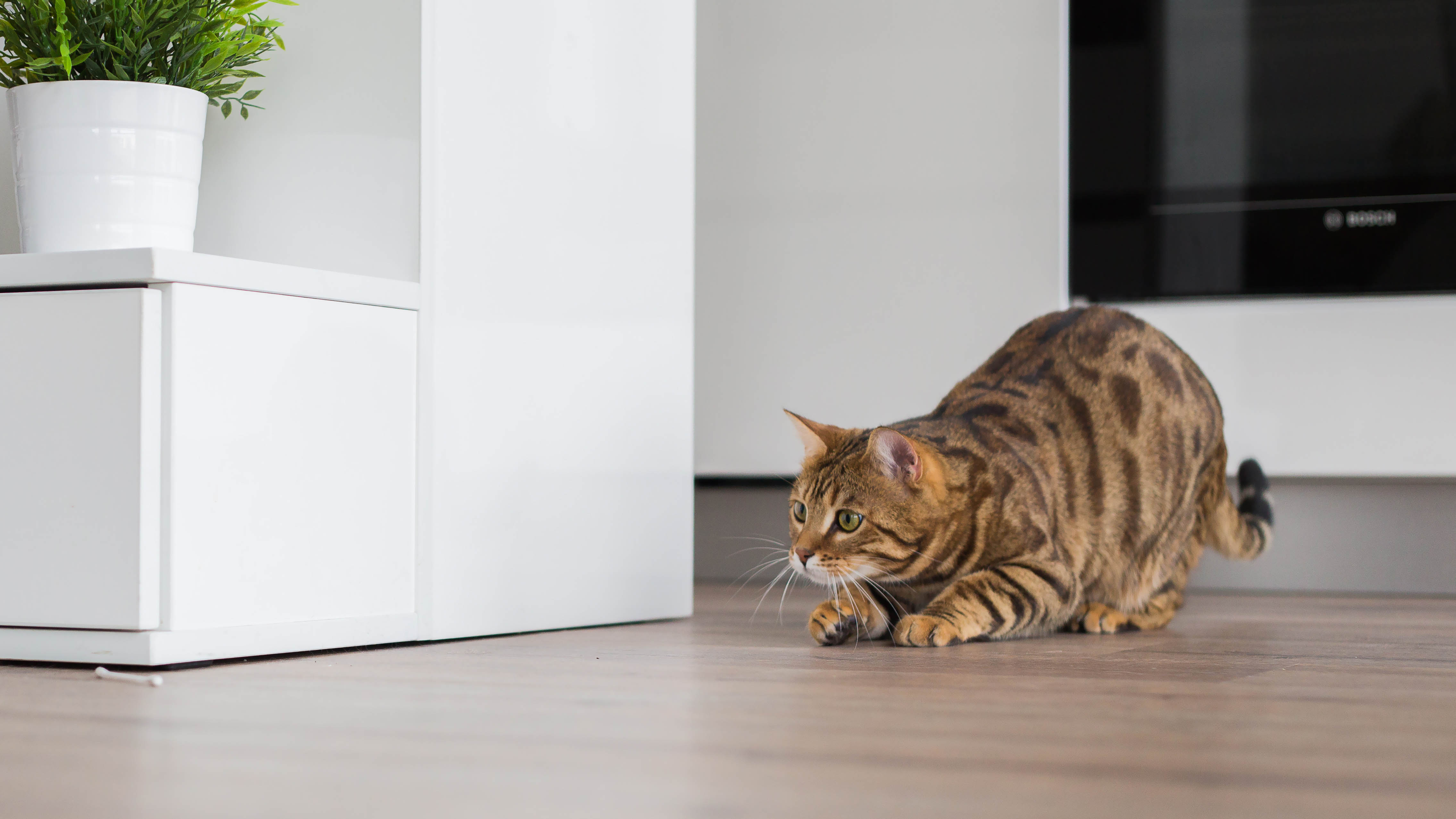
6. Adopt a cat — It might sound like a silly reason to adopt a pet, but cats are amazing spider hunters and will surely keep these insects out of your home. If you’ve always been on the fence about getting a cat (pun intended), now’s your chance.
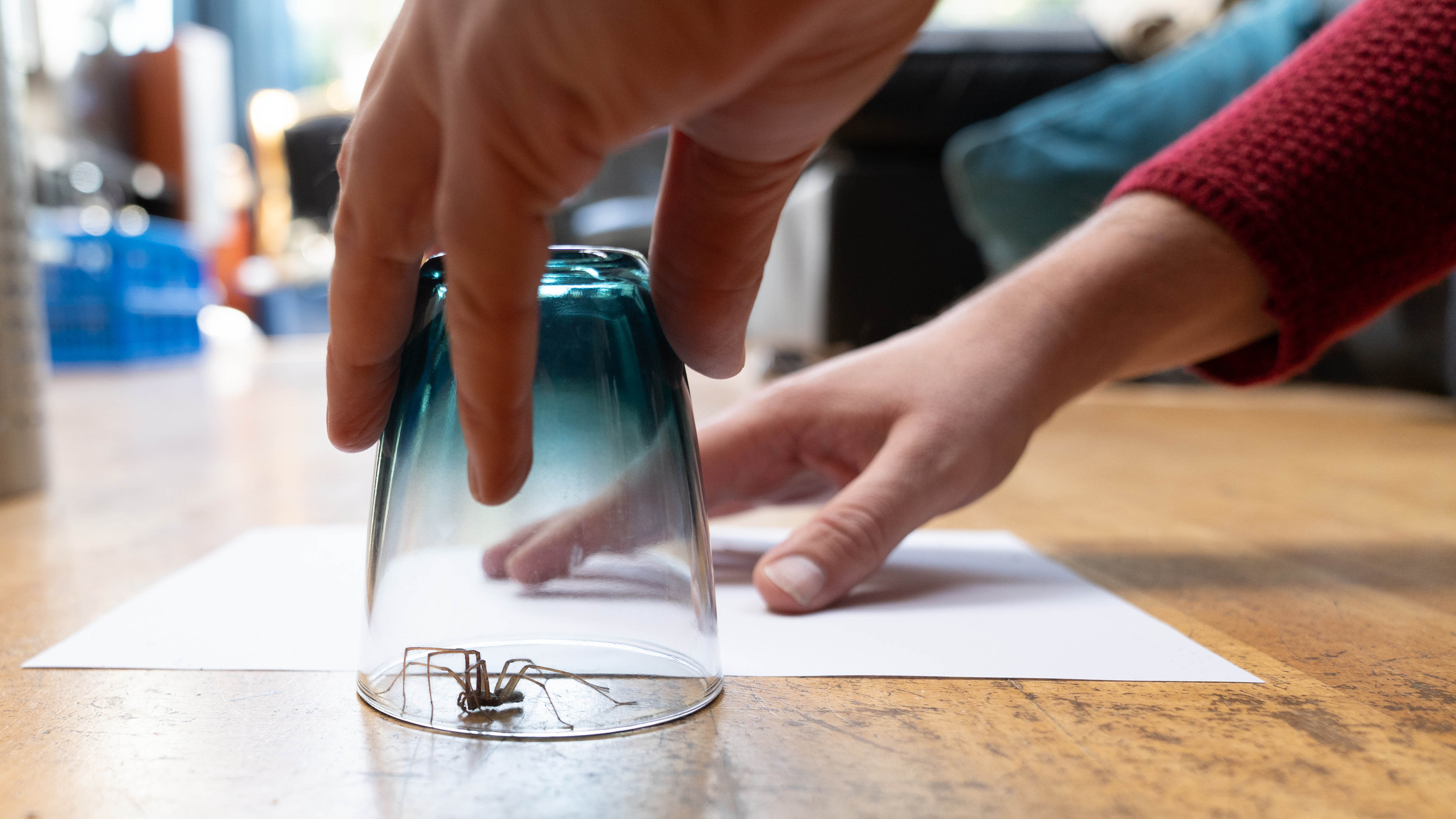
7. Catch the spider — If you don’t want to hurt the spider, you can always go back to basics and catch it yourself. If you don’t want to touch it, spider catchers are available, such as the My Critter Catcher ($22, Amazon).
If you’re not that nervous around spiders, there’s always the old-fashioned ‘catch it under a glass’ technique. Just be sure to release the spider a good 15 feet from your home so it won’t find its way back in.
How to get rid of spiders using traditional methods
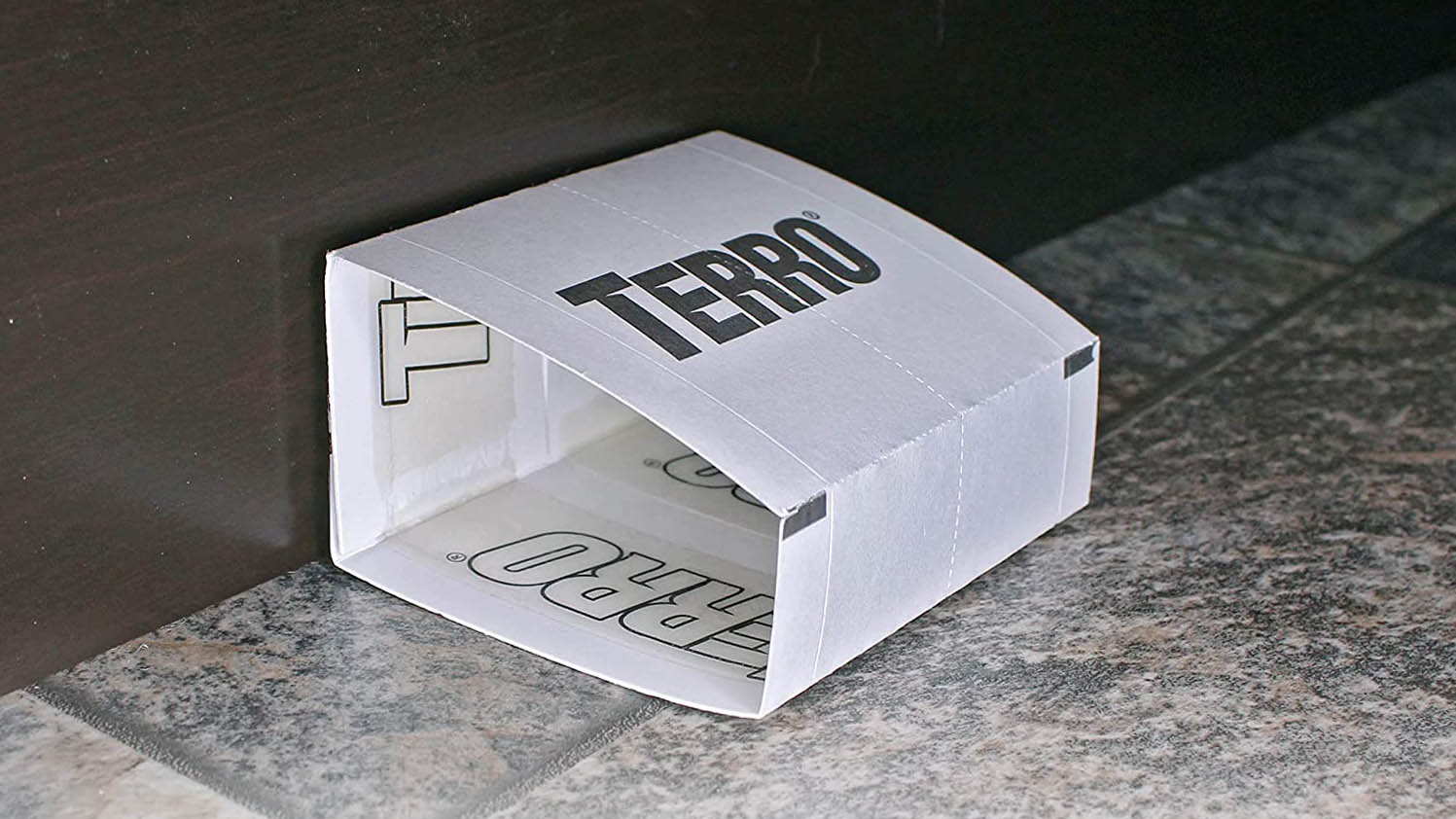
1. Spider traps — You can buy dedicated spider traps from most home department stores. These usually consist of a sticky surface which traps the spider as it crawls over it. An example would be the TERRO Non-Toxic Indoor Traps ($11, Amazon).
These traps should be placed in areas where you’ve seen spiders, such as along walls. They are cheap to purchase and offer an alternative to chemical methods. However, bear in mind glue traps will catch anything that comes into contact, so these should be handled with care and disposed of properly. Keep these away from children and pets.
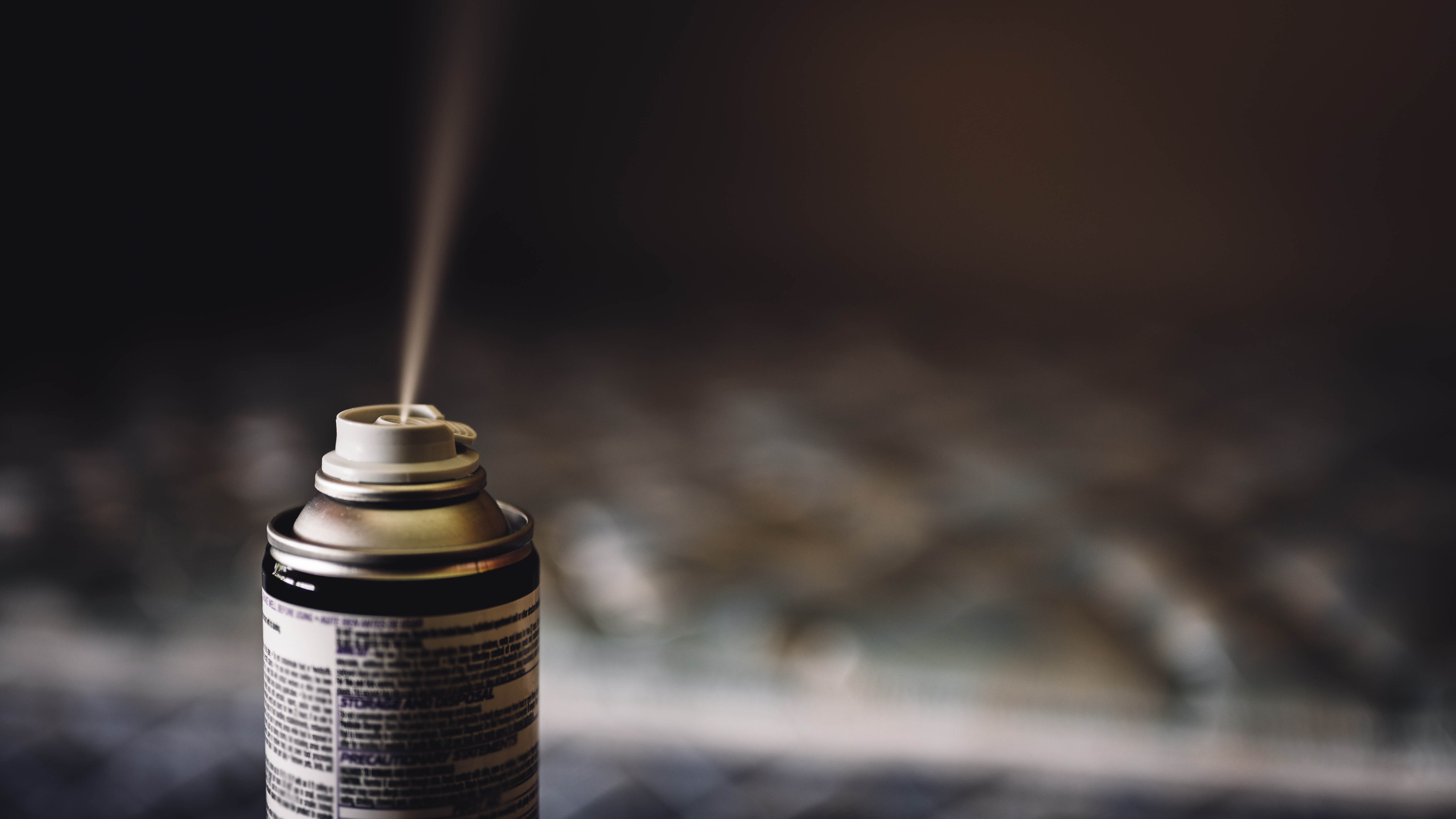
2. Insecticides — Lastly, you can use insecticides to kill and prevent spiders, but these generally contain chemicals and toxins, so we recommend using a natural repellent instead, such as Mighty Mint Gallon Insect and Pest Control ($35, Amazon).
Tips to keep spiders out of your home
- Remove food sources — Spiders eat other insects, so remove this food source by keeping a clean home. For instance, don’t leave dirty dishes out on the side and make sure your trash is sealed and emptied regularly. If you remove the initial food source, it will ultimately impact any spiders down the line.
- Tidy away clutter — Spiders prefer to hide and keep warm during the colder months. If your home is filled with clutter, such as cardboard boxes and newspapers, you’re providing ample shelter for them to go unnoticed. Keep your home open and bright, rather than cluttered and dark, and remember to check areas which often remain quiet and undisturbed, such as the attic.
- Install screens — Window and door screens will keep all kinds of insects, including spiders, from setting up shop in your home. Make sure these are placed flush against the frame, with no gaps for pests to squeeze through. If your screens are old and damaged, replace these to create an effective barrier.
- Use the right plants — Certain plants give off a scent which actively repels spiders. By strategically placing these around your home, you can keep spiders at bay. Examples of such plants include lavender, mint, rosemary and chrysanthemums.
More from Tom's Guide

Katie Mortram used to be a Homes Editor for Tom's Guide, where she oversaw everything from kitchen appliances to gardening tools, as well as smart home tech. Specializing in providing expert advice for cleaning and home manintenance, she now works as Household Advice Editor for Good Housekeeping.
